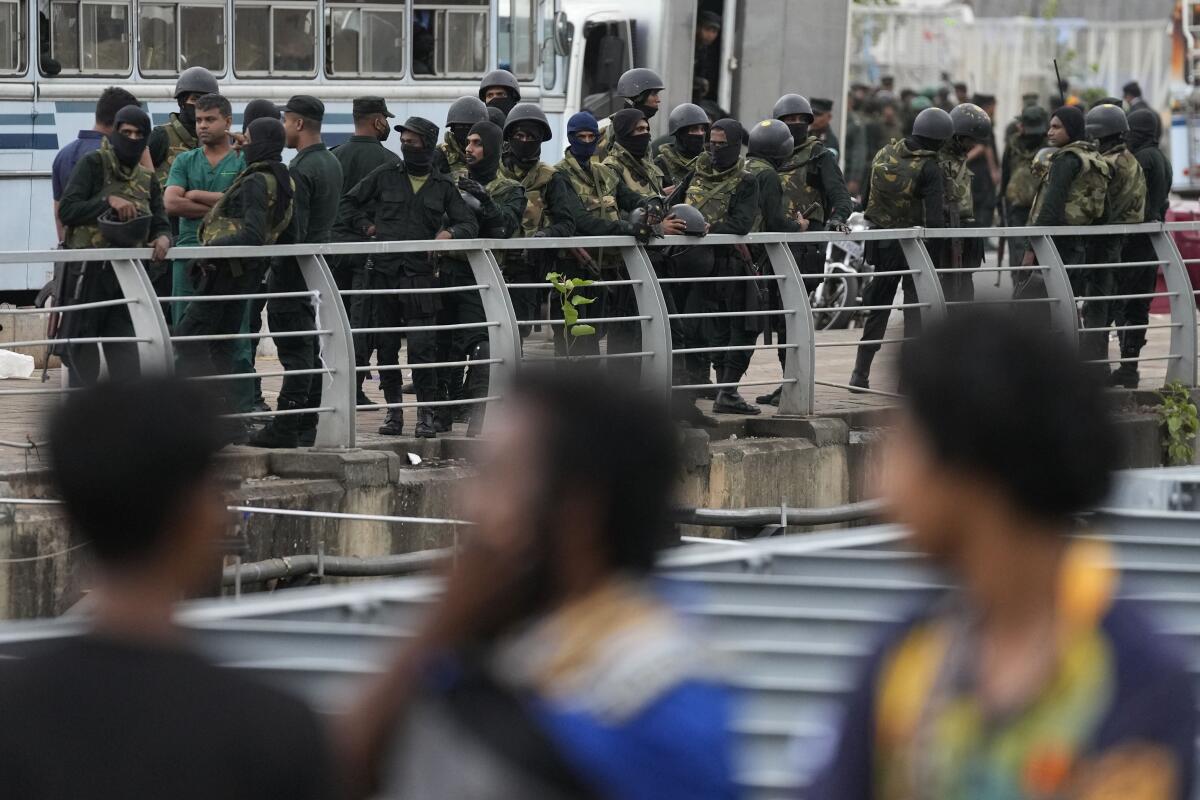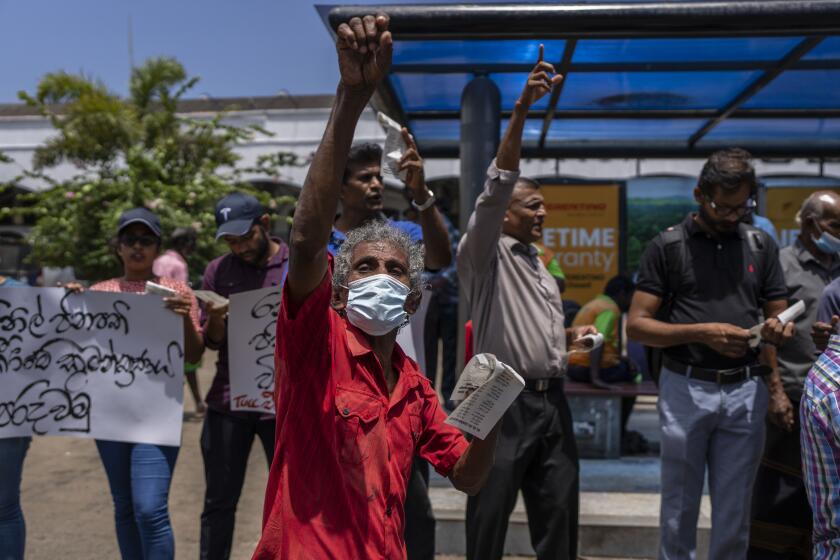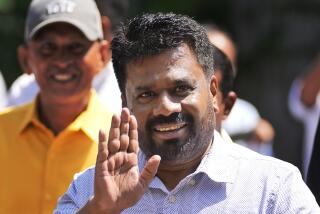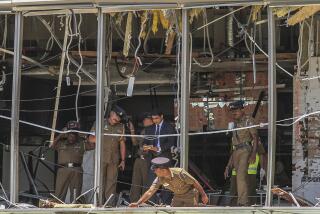Ally of political family blamed for Sri Lanka’s economic collapse is named prime minister

- Share via
COLOMBO, Sri Lanka — An ally of the Rajapaksa political family was appointed Friday as Sri Lanka’s prime minister, hours after security forces cleared the main protest site occupied for months by demonstrators angry at the Rajapaksas over the country’s economic collapse.
New President Ranil Wickremesinghe, who was elected by lawmakers and sworn into office this week, appointed his school classmate Dinesh Gunawardena to succeed him as prime minister. Gunawardena is 73 and belongs to a prominent political family.
Sri Lankans have taken to the streets for months demanding their leaders resign over an economic crisis that has left the island nation’s 22 million people short of essentials like medicine, food and fuel.
The protests forced out President Gotabaya Rajapaksa last week. His family has ruled Sri Lanka for most of the last two decades, but public outrage over the economic crisis forced several family members to leave ministry posts earlier in the crisis.
Gunawardena ‘s appointment came several hours after security forces made several arrests and cleared a protest camp near the presidential palace in the capital, Colombo, where demonstrators have gathered for 104 days.
Army and police personnel arrived in trucks and buses around midnight, removing tents and protest banners. They blocked off roads leading to the site and carried long poles.
Mass protests in Colombo signify a rare mass opposition in a country blighted by years of divisive politics. With the president’s ouster, the struggle continues.
The security forces were witnessed beating up at least two journalists. The Bar Assn. of Sri Lanka, the main lawyers’ body in the country, also said at least two lawyers were assaulted when they went to the protest site to offer their counsel. Its statement Friday called for a halt to the “unjustified and disproportionate actions” of armed forces against civilians.
On Monday, when he was then the acting president, Wickremesinghe declared a state of emergency that gave him broad authority to act in the interest of public security and order. Authorities have broad power to search premises and detain people, and Wickremesinghe can change or suspend any law.
On Friday, he issued a notice under the state of emergency calling out the armed forces to maintain law and order nationwide. The emergency must be reviewed by Parliament regularly to decide whether to extend it or let it expire.
Wickremesinghe, also 73, has wide experience in diplomatic and international affairs and has been overseeing bailout talks with the International Monetary Fund. He said Monday those discussions were near a conclusion and talks on help from other countries had also progressed. He also said the government has taken steps to resolve shortages of fuel and cooking gas.
More to Read
Sign up for Essential California
The most important California stories and recommendations in your inbox every morning.
You may occasionally receive promotional content from the Los Angeles Times.











